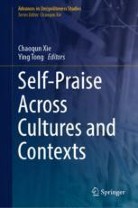
About this book series
The book series Advances in (Im)politeness Studies advances new perspectives, challenges and insights on (im)politeness studies and, in so doing, furthers understanding and interpretation of human worlds (online and offline) and human beings. (Im)politeness has, over the last several decades, become a multidisciplinary, interdisciplinary and transdisciplinary endeavor. (Im)politeness can be seen as a complex system, the production, perception, and evaluation of which may involve various components, linguistic, behavioral, cognitive, social, contextual, emotional, moral, historical, cultural and ethical. A full understanding of the (im)politeness system may only be reached by looking into the complex, fluid and dynamic interaction among those components.
The series invites innovative monographs and edited volumes that contribute to charting and shaping the discipline with respect to contemporary (im)politeness practice and research, that experiment with new and creative approaches to describing and explaining specific (im)politeness phenomena in either face-to-face communication or mediated interaction, or expound philosophical dimensions and implications of (im)politeness as a critical and essential lens through which to examine the full complexities and intricacies of human interpersonal interaction and human nature. Both experienced researchers and young enterprising scholars are welcome to submit their book proposals. The volumes in this series appeal to scholars and students of social interaction in general and pragmatics, sociolinguistics, philosophy, psychology, language teaching and learning in particular.For inquiries and submission of proposals authors can contact the editor-in-chief, Chaoqun Xie, via: chaoqunby@hotmail.com
- Electronic ISSN
- 2524-4019
- Print ISSN
- 2524-4000
- Series Editor
-
- Chaoqun Xie
Book titles in this series
-

-
Methodology in Politeness Research
- Authors:
-
- Elena Landone
- Copyright: 2022
Available Renditions
- Hard cover
- Soft cover
- eBook

-
Self-Praise Across Cultures and Contexts
- Editors:
-
- Chaoqun Xie
- Ying Tong
- Copyright: 2022
Available Renditions
- Hard cover
- Soft cover
- eBook

-
(Im)politeness at a Slovenian Call Centre
A Cross-Media Examination
- Authors:
-
- Sara Orthaber
- Copyright: 2023
Available Renditions
- Hard cover
- eBook

-
Advancing (Im)politeness Studies
Cultural, Digital and Emotional Aspects
- Editors:
-
- Chaoqun Xie
- Copyright: 2023
Available Renditions
- Hard cover
- eBook

